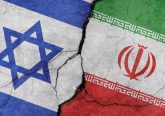
A funny thing happened in Moscow in September. Meeting with Russian President Vladimir Putin in Moscow at the beginning of the month, Armenia’s President Sargsian announced that Armenia had decided to join the Eurasian Customs Union. The Customs Union and the more general Eurasian Union project are an effort to foster re-integration in the former Soviet space. Sargsian’s statement effectively amounted to a retreat from the agreement between Armenia and the EU on Association. After three years of intense and successful negotiation with the EU, Armenia dumped the project.
Background
As the European Union completed its second round of enlargement to the East, the question of how to deal with states “beyond the line” arose. The 2003 European Security Strategy highlighted the significance of creating a peaceful and stable eastern perimeter. In 2004, the EU adopted a neighbourhood policy focusing on governance, liberalization, rule of law, and human rights on its eastern borders.
This policy implied deeper integration of these neighbours with the EU. The later Eastern Partnership involved an effort to conclude Association Agreements between the EU and these neighbours. The European Commission successfully concluded negotiations on association and deep and comprehensive free trade with Armenia and Georgia (and also Moldova and Ukraine). The upcoming Vilnius Partnership Summit is the culmination.
The process advanced largely without reference to the possibility that Russia might oppose the gradual eastward spread of EU influence into the region between the EU and the Russian Federation.
Concerning the Southern Caucasus, the process went nowhere with Azerbaijan. They are not interested in what is on offer. But negotiation processes with Armenia and Georgia were successful. However, Armenia backed away under intense pressure from Russia, given its dependence on Russia economically and in security.
Moldova, Georgia and Ukraine also experienced an intensification of pressure from Russia in the months leading up to Vilnius. The Russian Federation is resisting deeper integration of its neighbours into Europe, warning that signing up to Association agreements would be suicidal.
Russia in the Caucasus
Russian efforts to get the EU’s eastern partners to defect from the partnership has been greeted in Brussels with surprise and indignation, and attributed largely to the hard line taken by President Putin on the former Soviet space.
However, there is nothing particularly new here. Control of the Southern Caucasus has been an objective of the Russian state since Peter the Great. In the imperial period, the Southern Caucasus was a significant security problem for Russia. Iran and the Ottoman Empire were competing for control over the region with Russia. Many Russians continue to see Turkey as a geostrategic threat. They see the wider Middle East, including Turkey and Iran, as a source of religiously motivated instability inside the Russian Federation.
Russia is physically in the Caucasus. Several regions of the Russian Federation lie on the northern slope of the Caucasus Range. Some of them are deeply unstable. Russia is particularly sensitive on this question at the moment because of the Sochi Olympics. The Russian desire to control the areas within their border has sustained a deep and strong interest in control south of the Caucasian range. The Russian Army never left the former Soviet base in Armenia. Russian forces have remained in Abkhazia and South Ossetia since 1991. Russian security interests in the Southern Caucasus dwarf any EU interests in engagement.
Russian policy makers have long believed that the former Soviet space is a zone of special interest where the Russian Federation has particular rights that should be recognized by outsiders, as well as special duties to perform. In practice, Russia has tended not to acknowledge in practice the full sovereignty of its neighbours. Hence the well-worn notion of the “near abroad”.
These beliefs were strengthened by an accumulation of grievances vis-à-vis Western institutional enlargement. Russian policy-makers might have been willing to contemplate equal partnership in the early 1990s. But the West never treated them equally. The absorption of former Soviet allies by NATO and the EU gave the impression of a zero-sum game in which the stronger party was taking advantage of the weaker. Russian policy since the mid-2000s has also demonstrated great sensitivity to the potential threat to Russia’s authoritarian domestic arrangements from the extension of liberal-democratic forms of governance and the economy into the region.
The difference in Russia’s policy between the Yeltsin and Putin periods in the region is not so much that the current leadership is tougher, more nationalistic, and more imperial. It is that the Russian Federation has recovered a capacity to pursue an agenda of regional hegemony. Democratic change is no solution; there is little evidence that Putin’s domestic opposition take a different view on the neighbourhood. The EU faces not only a problem of asymmetrical motivation (they care and we care less), but also one of means: Russia can and does act. The EU also acts, but at a much more modest level. The response to the war in Georgia is a case in point.
Implications for the EU
In these respects, it is not surprising that Russia’s behaviour in the Caucasus appears to be zero-sum and coercive. But it raises important questions for the development of EU policy in the eastern neighbourhood. The end of the Cold war was a wasted opportunity to create a single European space. Instead of ending the Cold War in Europe, we may simply have moved the fault line to the East. This highlights the need for a coherent EU strategy towards Russia. In view of internal difficulties in the EU, differences of view on the importance of the eastern neighbourhood and on Russia, it is an open question whether the EU can come up with such a strategy.
The EU apparently wants to be taken seriously as a major international actor. To get there, it needs to address major problems in the European region seriously. Unless Western institutions are willing to balance effectively against Russia in the neighbourhood, stabilisation and reform in the EU’s eastern neighbourhood cannot be done without Russian cooperation. Ignoring Russia hasn’t worked.







No Comment